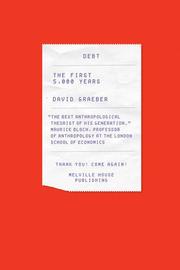| Listing 1 - 3 of 3 |
Sort by
|
Book
ISBN: 1849647615 9781849647618 9781849647625 1849647623 9781849647632 1849647631 9780745332864 0745332862 9780745332857 0745332854 Year: 2012 Publisher: London Pluto Press
Abstract | Keywords | Export | Availability | Bookmark
 Loading...
Loading...Choose an application
- Reference Manager
- EndNote
- RefWorks (Direct export to RefWorks)
Protest movements. --- Financial crises. --- Crashes, Financial --- Crises, Financial --- Financial crashes --- Financial panics --- Panics (Finance) --- Stock exchange crashes --- Stock market panics --- Crises --- Social movements --- Occupy movement. --- Society. --- Political philosophy. Social philosophy
Book
ISBN: 0415159806 9780128032763 0128032766 9780415159807 0128032758 9780128032756 1336286571 Year: 2015 Publisher: Amsterdam, [Netherlands] : Academic Press,
Abstract | Keywords | Export | Availability | Bookmark
 Loading...
Loading...Choose an application
- Reference Manager
- EndNote
- RefWorks (Direct export to RefWorks)
Unique in its breadth of coverage, Who's Who in Contemporary Women's Writing is a comprehensive, authoritative and enjoyable guide to women's fiction, prose, poetry and drama from around the world in the second half of the twentieth century. Over the course of 1000 entries by over 150 international contributors, a picture emerges of the incredible range of women's writing in our time, from Toni Morrison to Fleur Adcock- all are here. This book includes the established and well-loved but also opens up new worlds of modern literature which may be unfamiliar but are never less than fascinating.
Thematology --- Women authors - 20th century - Dictionaries --- Economics --- Financial crises. --- Nonlinear theories. --- Decision making --- Mathematical models. --- 82:396 --- 82 <03> --- 82 <03> Literatuur. Algemene literatuurwetenschap--Naslagwerken. Referentiewerken --- Literatuur. Algemene literatuurwetenschap--Naslagwerken. Referentiewerken --- 82:396 Literatuur en feminisme --- Literatuur en feminisme --- Nonlinear problems --- Nonlinearity (Mathematics) --- Calculus --- Mathematical analysis --- Mathematical physics --- Crashes, Financial --- Crises, Financial --- Financial crashes --- Financial panics --- Panics (Finance) --- Stock exchange crashes --- Stock market panics --- Crises --- Economic theory --- Political economy --- Social sciences --- Economic man --- Women authors

ISBN: 9781933633862 9781612191294 1933633867 1612191290 Year: 2011 Publisher: Brooklyn (N.Y.) : Melville House,
Abstract | Keywords | Export | Availability | Bookmark
 Loading...
Loading...Choose an application
- Reference Manager
- EndNote
- RefWorks (Direct export to RefWorks)
Every economics textbook says the same thing: Money was invented to replace onerous and complicated barter system--to relieve ancient people from having to haul their goods to market. The problem with this version of history? There's not a shred of evidence to support it. Here anthropologist David Graeber presents a stunning reversal of conventional wisdom. He shows that for more than 5,000 years, since the beginning of the agrarian empires, humans have used elaborate credit systems--a system that far preceeded cash or organized barter. It is in this era, Graeber shows, that we also first encounter a society divided into debtors and creditors. With the passage of time, however, virtual credit money was replaced by gold and silver coins--and the system as a whole began to decline. Interest rates spiked and the indebted became slaves. And the system perpetuated itself with tremendously violent consequences, with only the rare intervention of kings and churches keeping the system from spiraling out of control. Debt: The First 5,000 Years is a fascinating chronicle of this little known history--as well as how it has defined human history, and what it means for the credit crisis of the present day and the future of our economy.
AA / International- internationaal --- 331.162.4 --- 333.70 --- Geschiedenis van het krediet. --- Theorie en organisatie van het bankkrediet. --- Debt --- -Money --- -Financial crises --- -336.7 <09> --- 330.9 --- 332 --- Crashes, Financial --- Crises, Financial --- Financial crashes --- Financial panics --- Panics (Finance) --- Stock exchange crashes --- Stock market panics --- Currency --- Monetary question --- Money, Primitive --- Specie --- Standard of value --- Indebtedness --- 336.7 <09> Geschiedenis van het bankwezen --- Geschiedenis van het bankwezen --- History --- Crises --- Exchange --- Finance --- Value --- Banks and banking --- Coinage --- Currency question --- Gold --- Silver --- Silver question --- Wealth --- Financial crises --- Money --- Geschiedenis van het krediet --- Theorie en organisatie van het bankkrediet --- International finance --- 336.7 <09> --- History. --- Dettes --- Monnaie --- Crises financières --- Histoire --- Debt - History --- Money - History --- Financial crises - History
| Listing 1 - 3 of 3 |
Sort by
|

 Search
Search Feedback
Feedback About
About Help
Help News
News